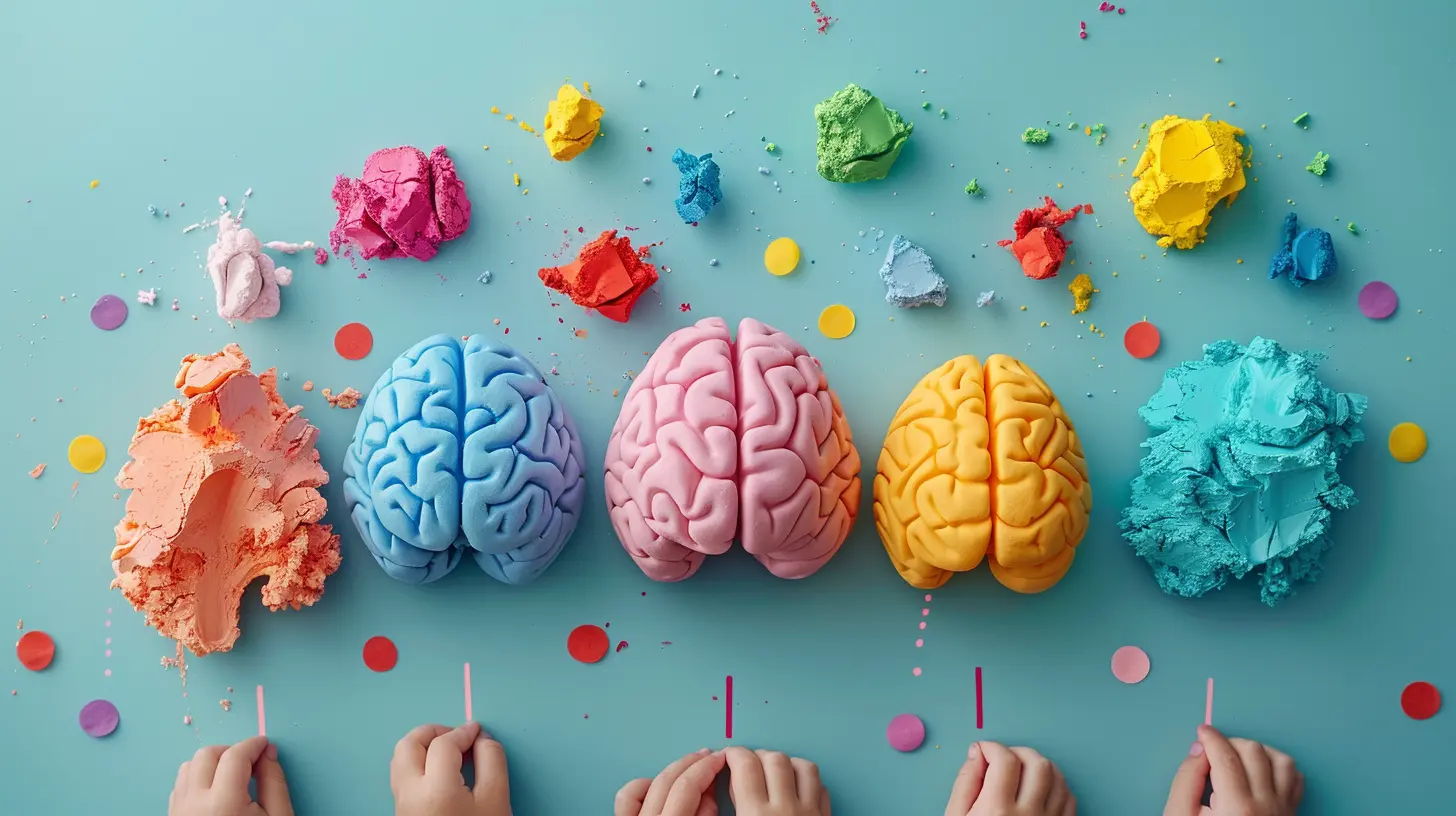Cognitive Development and the Role of Early Education
26 September 2025
Understanding how our minds grow and evolve—especially in early childhood—can be a game changer. It's not just about learning the alphabet or counting to ten. Cognitive development in those early years lays the foundation for how we think, solve problems, and interact with the world for the rest of our lives. Early education? Well, it's one of the pillars holding up this entire structure.
In this article, we’re going to peel back the layers of cognitive development and really dig into how early education plays a crucial part. From brain wiring to bedtime stories, we’ll explore how little things can have a lasting impact.
What Is Cognitive Development Anyway?
Let’s start right at the beginning. Cognitive development refers to how a child learns, thinks, reasons, and figures things out. It includes memory, attention span, problem-solving, language skills, and decision-making.Think of the brain like a sponge in the early years—it’s soaking up everything. From birth to around age five, a child's brain develops more than at any other time in life. During this period, a staggering one million new neural connections form every second.
Crazy, right?
So when we talk about early education, we’re not just talking about preschool and ABCs. We’re talking about shaping the very architecture of the brain.
The Science Behind Early Brain Development
Okay, let’s put on our science hats—just for a minute.The early years are a time of rapid neurological growth. A child’s brain is building pathways (called neural circuits) that affect cognitive function throughout life. These circuits are responsible for things like language, self-control, and social interaction.
When children are exposed to enriching environments—like engaging conversations, a variety of textures and colors, or being read to—their brains light up like a Christmas tree. Synapses form, repeat, and strengthen.
Think of the brain like a city in development. Roads (neural pathways) are being built every day. The more often you drive on a road, the smoother it becomes. Same thing happens in the brain—repetition strengthens those connections.
So where does early education fit in? Let’s dive into it.
Why Early Education Is a Big Deal
Imagine trying to build a house without a solid foundation. It’d be a disaster, right? The same goes for education. If a child starts formal learning without a strong cognitive base, everything becomes harder—whether it’s reading, paying attention, or solving a math problem.Early education isn’t just about teaching facts. It's about sparking curiosity, building confidence, and creating an eager learner. And trust me, that matters more than we often realize.
Here’s how early education plays a starring role in shaping cognitive development:
1. Boosting Language Skills
Let’s face it—language is everything. It’s how we express thoughts, understand others, and make sense of the world. Early childhood programs that focus on reading, storytelling, and conversation can supercharge vocabulary growth and comprehension.A child who hears more words—especially rich, complex ones—tends to develop stronger language abilities, which sets them up for success in school and beyond.
2. Sharpening Memory and Focus
Ever wonder how a three-year-old remembers the lyrics of a song they heard once but forgets to put on their shoes? That’s the brain developing its memory systems. Early education sharpens these skills by encouraging routines, games, and problem-solving activities.Think puzzles, memory cards, or simple tasks like setting the table. These daily challenges stretch the brain and help children organize their thoughts better.
3. Developing Emotional Intelligence
Cognitive development isn’t just about IQ; EQ (emotional intelligence) matters too. Through structured social interaction—shared play, teamwork activities, and emotional coaching—kids learn empathy, patience, and how to manage emotions.And guess what? Emotional intelligence is closely tied to decision-making and problem-solving. So yes, learning how to share toys can actually help your child become a better leader one day.
4. Encouraging Curiosity and Creativity
Curiosity is the fuel for learning. When kids feel safe and encouraged to ask “why?” (a hundred times a day!), they build the habit of thinking critically.High-quality early education nurtures this sense of wonder. By providing open-ended materials, hands-on activities, and opportunities for discovery, educators can help children build those “thinking muscles.”
Home and School: A Powerful Partnership
It’s tempting to think that early education begins and ends in a classroom. But let's be real—parents, caregivers, and the home environment play a huge role too.Reading bedtime stories, playing pretend, singing songs—these simple, everyday interactions are full-on brain workouts for young children.
When early education programs include family engagement, the benefits multiply. It’s like combining the efforts of a coach and a personal trainer—both pushing you toward your goals in different, but equally important, ways.
So, parents—don’t underestimate your power. You’re your child’s first and most impactful teacher.
The Long-Term Payoff
Let’s fast forward a bit. What happens when a child gets quality early education? The effects don’t just fade as the years go by. According to long-term studies, kids who attend high-quality early learning programs are more likely to:- Perform better in school
- Graduate from high school
- Attend college
- Have fewer behavioral issues
- Earn higher incomes later in life
These aren’t just “nice-to-have” outcomes. They’re life-changing.
And here’s something else to think about—early education can be a great equalizer. For children from disadvantaged backgrounds, those early years can either widen the gap or help close it. Early investment can lead to more equity and opportunity down the line.
What Makes Early Education Effective?
Not just any program will do. To genuinely support cognitive development, early education needs:1. Quality Teachers
This is huge. Educators who are trained, passionate, and empathetic can make all the difference. They understand how to guide learning in ways that are age-appropriate and meaningful.2. Stimulating Curriculum
We're not talking about rote memorization here. A good early education curriculum is hands-on, play-based, and relevant to real life. It should encourage exploration, critical thinking, and creativity.3. Safe and Nurturing Environments
Children need to feel safe and loved to learn effectively. When a classroom feels like a second home, kids thrive emotionally and intellectually.4. Small Class Sizes
More one-on-one interaction means better-tailored learning experiences. Quality over quantity every time.Barriers to Access—and Why They Matter
Unfortunately, not every child gets the same shot at quality early education. Cost, location, and lack of resources are just a few of the hurdles.This isn’t just a personal issue for families—it’s a societal one. When we fail to invest in early education for all, we miss out on a more capable, creative, and resilient future generation.
Think of it like planting seeds. If we water some and ignore others, the garden won’t flourish as it should.
What Can You Do as a Parent or Caregiver?
You don’t need to be a certified teacher to support your child’s cognitive growth. Here are some practical ways to get involved:- Read together daily (even if it’s the same book for the hundredth time)
- Encourage open-ended play (blocks, dolls, sandbox—let them lead)
- Ask lots of “why” and “how” questions to inspire thinking
- Provide consistent routines and positive reinforcement
- Talk, sing, and share stories as often as you can
Simple actions, massive results.
Final Thoughts
Cognitive development and early education aren’t just buzzwords—they’re building blocks for a brighter future. When we invest time, attention, and love into those early years, we’re doing more than preparing kids for kindergarten—we're shaping who they become.So, whether you're a parent, teacher, or just someone who cares, remember this: every puzzle piece your child fits together, every question they ask, every story they hear—all of it counts.
Let’s make those early years count, too.
all images in this post were generated using AI tools
Category:
Cognitive DevelopmentAuthor:

Jenna Richardson
Discussion
rate this article
1 comments
Beth Russell
Great insights! Early education is vital for cognitive growth, shaping our future thinkers and problem-solvers. Let's prioritize and invest in it!
October 5, 2025 at 4:39 PM

Jenna Richardson
Thank you! I completely agree—investing in early education is essential for nurturing our future innovators and leaders.


